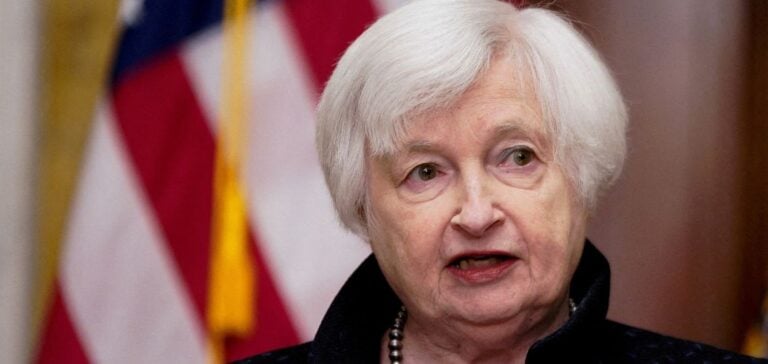In a recent interview with Bloomberg TV, U.S. Treasury Secretary Janet Yellen discussed planned changes to tariffs imposed on Chinese products. These changes are aimed primarily at clean energy products and electric vehicles. Yellen expressed the view that the US remains cautious and prepared for a potential Chinese response. It emphasizes that the designers have specifically designed the measures envisaged to address targeted concerns. What’s more, they are not intended to be large-scale punitive actions.
Communication and diplomatic strategy
Janet Yellen stressed the importance of communication between Washington and Beijing. She explained that the decisions taken would be communicated to China before any official announcement. The aim is to maintain transparency and reduce the risk of misunderstandings escalating into conflicts. Yellen hopes that these measures will be perceived as fair and targeted, thus avoiding disproportionate reactions. In addition, the Treasury Secretary also referred to the history of tariffs introduced under the Trump administration. They involved around $300 billion worth of Chinese goods.
Economic impact of tariffs
Planned tariff adjustments could have an impact on key industries. These include semiconductors and solar energy, as well as batteries from China. Particularly noteworthy is the increase in tariffs for electric vehicles, which could potentially double to around 100%. On the other hand, Yellen stressed the importance of the US maintaining a strong presence in these vital sectors, not only for national security but also to support the domestic economy by promoting the creation of good jobs.
“It’s essential that the U.S. plays a role and has a presence in critical industries, such as semiconductors or clean energy, to make them the foundation of good jobs and national security for decades to come.”
Reactions and long-term implications
The tariff review comes at a critical time, as the US seeks to strengthen its economy in the face of global challenges and international competition. According to Yellen, these measures are a continuation of previous initiatives. These were already aimed at reducing American dependence on subsidized Chinese products and technologies. In addition, she points out that these Chinese subsidies have long been a point of contention, and the new tariff policies aim to balance trading conditions while protecting American investments made under the great green plan, the IRA (Inflation Reduction Act).
The new US tariff initiatives represent a calculated strategy to protect domestic industries while navigating a complex geopolitical landscape. By targeting specific sectors and maintaining open communication with China, Washington hopes to minimize conflict while securing its long-term economic and strategic interests. These measures are necessary to ensure a solid foundation for the economic future and security of the United States.






















